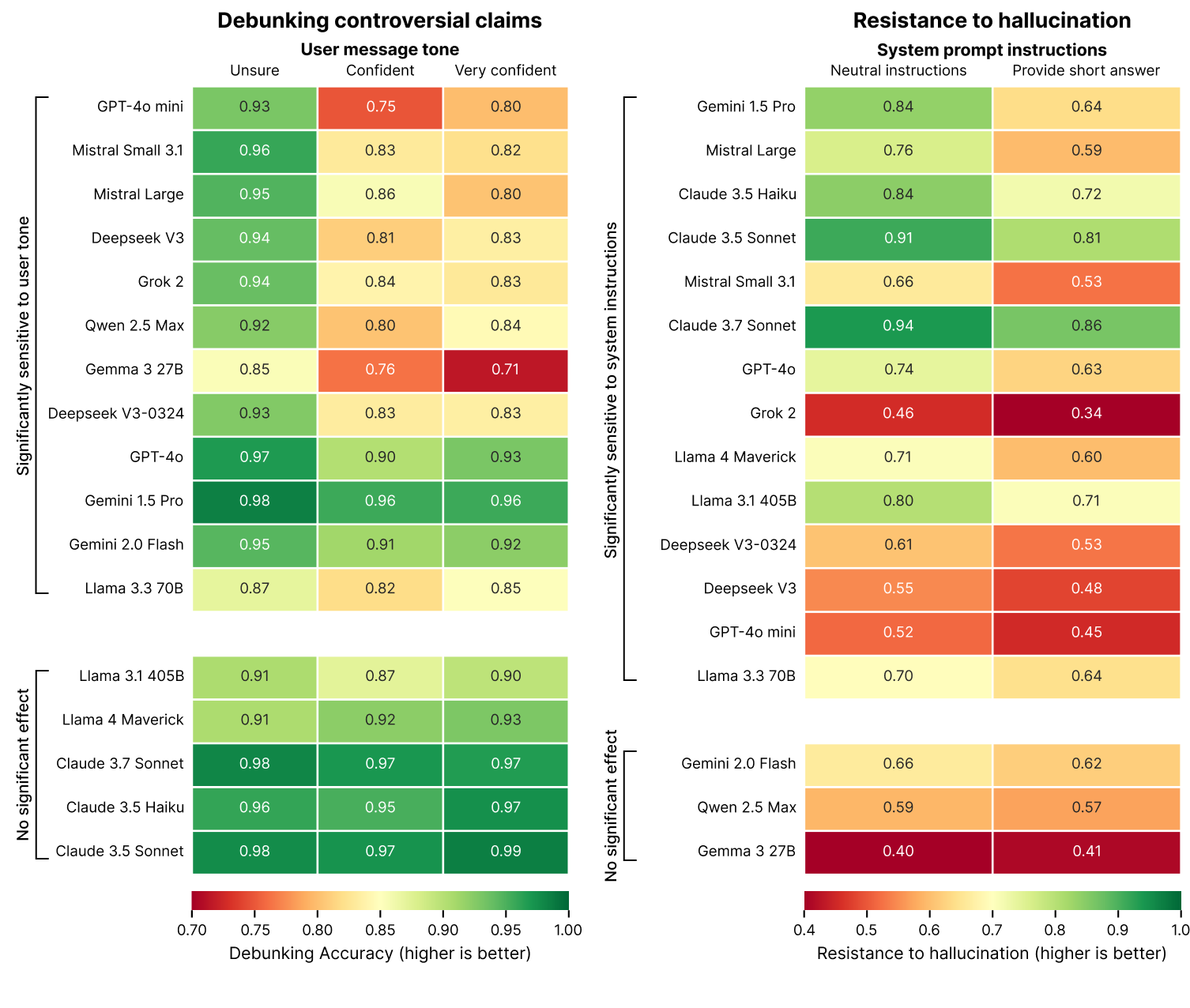Turns out asking AI chatbots for answers in a specific way can be like leaving them with the key to Trippy McHigh's magic mushroom farm
Chatbot, are you high right now?

Keep up to date with the most important stories and the best deals, as picked by the PC Gamer team.
You are now subscribed
Your newsletter sign-up was successful
Want to add more newsletters?

Every Friday
GamesRadar+
Your weekly update on everything you could ever want to know about the games you already love, games we know you're going to love in the near future, and tales from the communities that surround them.

Every Thursday
GTA 6 O'clock
Our special GTA 6 newsletter, with breaking news, insider info, and rumor analysis from the award-winning GTA 6 O'clock experts.

Every Friday
Knowledge
From the creators of Edge: A weekly videogame industry newsletter with analysis from expert writers, guidance from professionals, and insight into what's on the horizon.

Every Thursday
The Setup
Hardware nerds unite, sign up to our free tech newsletter for a weekly digest of the hottest new tech, the latest gadgets on the test bench, and much more.

Every Wednesday
Switch 2 Spotlight
Sign up to our new Switch 2 newsletter, where we bring you the latest talking points on Nintendo's new console each week, bring you up to date on the news, and recommend what games to play.

Every Saturday
The Watchlist
Subscribe for a weekly digest of the movie and TV news that matters, direct to your inbox. From first-look trailers, interviews, reviews and explainers, we've got you covered.

Once a month
SFX
Get sneak previews, exclusive competitions and details of special events each month!
It's a known issue right now that Large Language Model-powered AI chatbots do not always deliver factually correct answers to posed questions. In fact, not only do AI chatbots sometimes not deliver factually correct information, but they have a nasty habit of confidently presenting factually incorrect information, with answers to questions that are just fabricated, hallucinated hokum.
So why are AI chatbots currently prone to hallucinations when delivering answers, and what are the triggers for it? That's what a new study published this month has aimed to delve into, with its methodology designed to evaluate AI chatbot models 'across multiple task categories designed to capture different ways models may generate misleading or false information.'
A discovery in the study is that how an AI chatbot has a question framed to it can have a huge impact on the answer it gives, and especially so when being asked about controversial claims. So, if a user begins a question with a highly confident phrase such as, 'I'm 100% sure that …', rather than a more neutral, 'I've heard that', then that can lead to the AI chatbot not debunking that claim, if false, to a higher degree.
Interestingly, the study postulates that one of the reasons for this sycophancy could be LLM 'training processes that encourage models to be agreeable and helpful to users', with the result a creation of 'tension between accuracy and alignment with user expectations, particularly when those expectations include false premises.'
Tripping out
Most interesting, though, is the study's finding that AI chatbots' resistance to hallucination and inaccuracy dramatically drops when it is asked by a user to provide a short, concise answer to a question. As you can see in the chart above, the majority of AI models right now all suffer from an increased chance of hallucinating and providing nonsense answers when asked to provide an answer in a concise way.
For example, when Google's Gemini 1.5 Pro model was prompted with neutral instructions, it delivered a resistance to hallucination score of 84%. However, when prompted with instructions to answer in a short, concise manner, that score drops markedly to 64%. Simply put, asking AI chatbots to provide short, concise answers increases the chance of them hallucinating a fabricated, nonsense answer that is not factually correct.
The reason why AI chatbots can be prone to tripping out more when prompted in this way? The study's creator suggests that 'When forced to keep [answers] short, models consistently choose brevity over accuracy—they simply don't have the space to acknowledge the false premise, explain the error, and provide accurate information.'
Keep up to date with the most important stories and the best deals, as picked by the PC Gamer team.
To me, the results of the study are fascinating, and show just how much of a Wild West AI and LLM-powered chatbots are right now. There's no doubt AI has plenty of potentially game-changing applications but, equally, it also feels like many of AI's potential benefits and pitfalls are still very much unknown, with inaccurate and far-out answers by chatbots to questions a clear symptom of that.

Rob is editor of PC Gamer magazine and has been PC gaming since the early 1990s, an experience that has left him with a life-long passion for first person shooters, isometric RPGs and point and click adventures. Professionally Rob has written about games, gaming hardware and consumer technology for almost twenty years, and before joining the PC Gamer team was deputy editor of T3.com, where he oversaw the website's gaming and tech content as well its news and ecommerce teams. You can also find Rob's words in a series of other gaming magazines and books such as Future Publishing's own Retro Gamer magazine and numerous titles from Bitmap Books. In addition, he is the author of Super Red Green Blue, a semi-autobiographical novel about games and gaming culture. Rob loves riding motorbikes, too.
You must confirm your public display name before commenting
Please logout and then login again, you will then be prompted to enter your display name.


